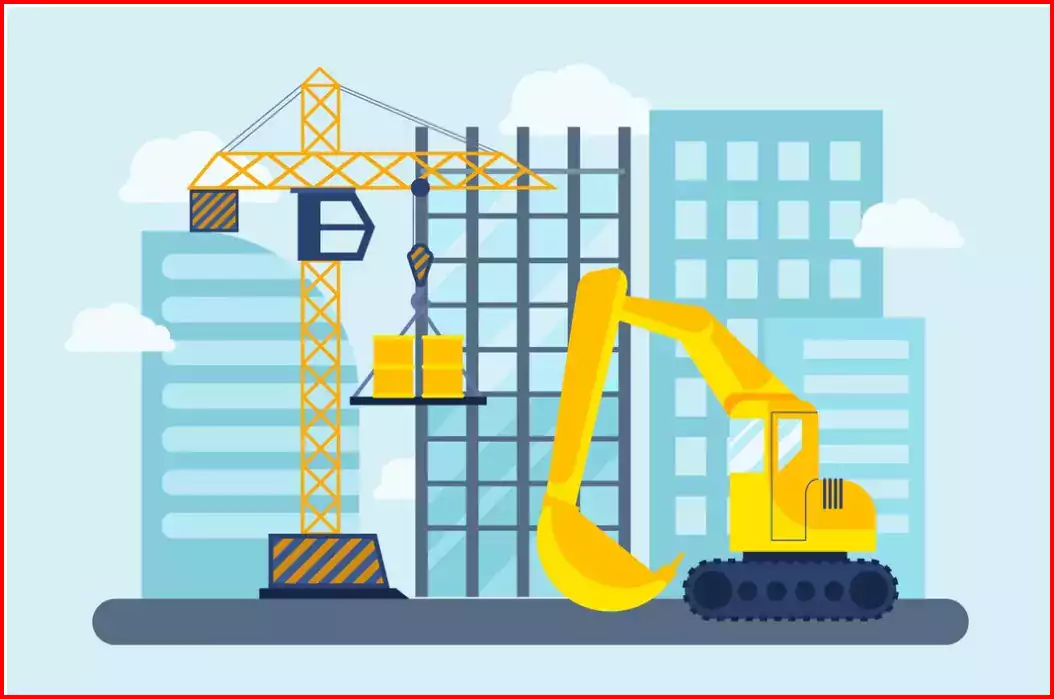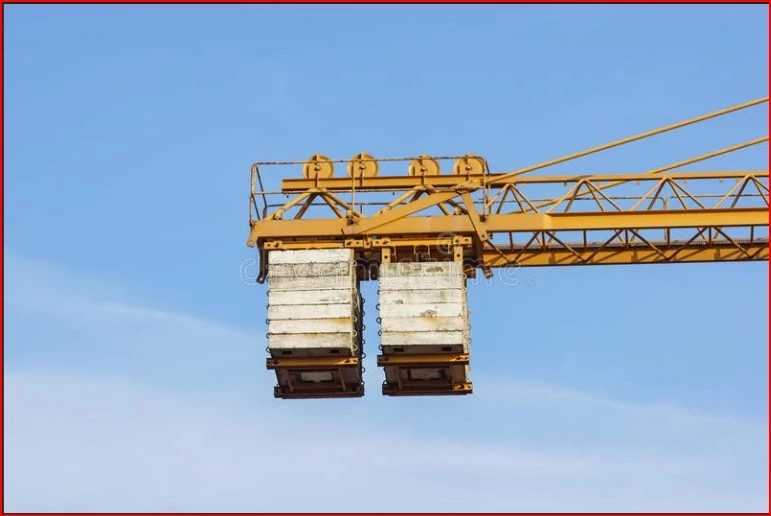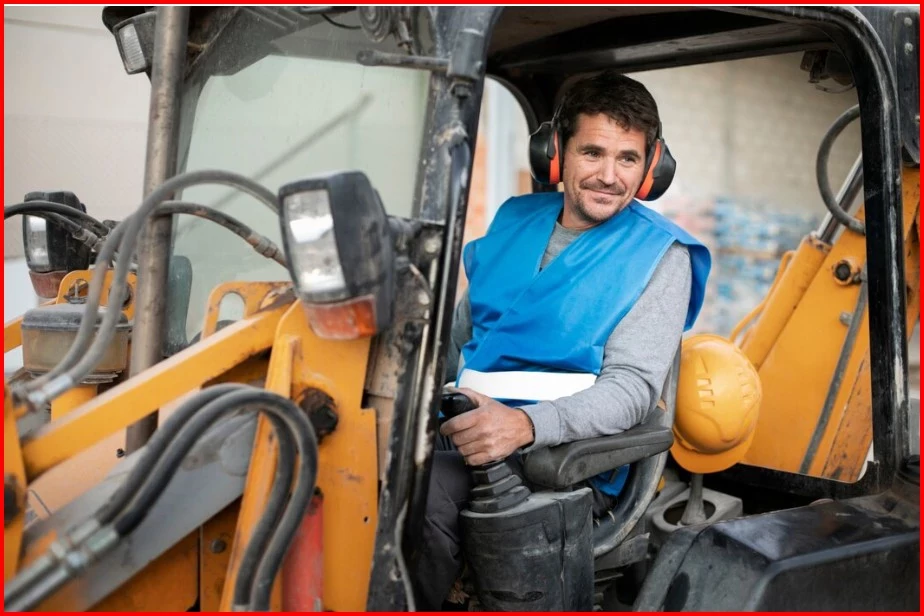
Do's and Dont's of Renting a Crane

On numerous building sites, a crane is a vital item of gear. A lot of businesses opt for renting cranes because it gives them more freedom and lets them utilize a crane just for the time they need to. Companies that are interested in renting a crane for their next venture should know about a few of the best things that other renters have done.
Everything you need to know about hiring cranes is in our complete guide. Let’s know the Do's and Dont's of Renting a Crane below:
Do's of Renting a Crane
If you rent a crane, make sure you know how to use it correctly to keep your workplace safe and the work moving along quickly. These are some of the most beneficial ways to use a cane correctly:
-
Put on the right clothes:
People who work near or operate a crane ought to put on the right clothes. When dealing with a crane, you normally need to wear a hard hat, safety glasses, gloves, protective shoes, earplugs, as well as a vest that shines in the dark.
-
Make sure the workers have licenses:
Before utilizing a crane, operators should have the right licenses. Someone who works on a crane without a license could get your company in trouble with the law. An unlicensed user may be unsure how to utilize the crane correctly either, which could cause injuries and crashes.
-
Do a preliminary check:
Check the load, the job area, and the tools before starting up the crane. Examine the tools to make sure they are all in good working order. Also, make sure the work area is level and free of any possible dangers. Last but not least, secure working loads are essential because you cannot afford to put too much on the crane and break it.
-
Get the crane's load ready:
Before the crane moves a load, the workers should make sure the load is balanced and safe. It's also important to look at the crane's hook and see if it feels old or needs to be replaced. Crew members also shouldn't utilize a wire rope and load change as an anchor.
-
Spend less time on other things:
People who are working with or near the crane are required to be careful. Cell phones are a big distraction, so put them away. If a supervisor sees something that could be a distraction, they ought to attempt to get rid of it before the crane's workers use it.
-
Be careful on the lift:
The crew ought to constantly keep an eye on the load while it's in the air as well as never leave it alone. The crew ought to be aware not to walk beneath the load, as well as the operator ought not to tip the load over someone else. A driver who cares about safety will also watch where the load is headed. Also, you should never push a load instead of pulling it.
-
If you think something is wrong, stop:
Whenever you utilize the crane and notice something that doesn't look right, stop right away. Before using the crane once more, have a skilled boss or operator figure out what went wrong as well as fix it. For such heavy-duty tools, being careful should be the most important rule.
-
After a lift, put safety first:
When the load gets to its location, the team needs to secure it and make sure they know how to safely remove it. In addition, store the stabilizers, extensions, and lifts safely when you're not using the crane for work.
Dont's of Renting a Crane
As you search for the ideal crane, you should also make sure that it meets the needs of your job. You shouldn't choose a crane that is unable to maneuver the terrain of your job site or that isn't tall enough to lift things sufficiently high. You can make sure you get a crane that meets each of your needs by checking out the job site when you rent one.
Before you rent a crane, think about these job requirements:
-
Unchecking The land around the site:
Mobile cranes feature various kinds of wheels that work best on various kinds of ground. When companies have job sites with rough terrain, for example, they might need a rough-terrain crane with heavy-duty tires. The crane with normal wheels might be enough for areas that aren't too difficult.
-
Not checking the size of the job site:
One of the initial things you ought to think about before renting a crane is how big the spot is that you'll be doing work on. If the job site has a lot of room, you can use a bigger crane, but you probably need a crane with which you can maneuver rapidly around the site. When the job place is small, the crane needs to be tiny too so it will fit in tight spaces.
-
Avoiding the Size and weight of the things:
It's helpful to know how much weight and size of the things you want to lift with the crane when you rent it. When you rent a crane, make sure it has enough room and weight to pick up the things you need. Bigger cranes may additionally assist workers to move and lift things more quickly.
-
Risks to safety:
Cranes are occasionally required to go around or under things that could be dangerous on the job site, like electrical lines. If the crane can't move within a power line or additional risks, it could hurt the construction site or the crane itself. It's also important to choose a crane that isn't too big and may decrease its boom sufficiently to fit beneath an unseen danger.
-
Unsure about the places to store cranes:
People who work on the job site might be required to store a crane once it's not in use. Make sure that the job spot has a safe way of storing and securing the crane. You might want to choose a more compact crane that's simple to store if your job spot lacks a lot of room.
Conclusion
Most of the time, it's safer to rent a crane for longer than you think you'll require it. When you overestimate, you allow your team room to move around while they operate. However, from this article you must know the Do's and Dont's of Renting a Crane. Get the best crane rental service now. Small mistakes and unplanned events can sometimes happen that slow down the progress of your endeavor. If you overestimate how long you must spend renting the crane, you'll give the workers a lot of time to handle any tough situations without worrying about returning it before they are done.
- Tags:
- Crane rental services


